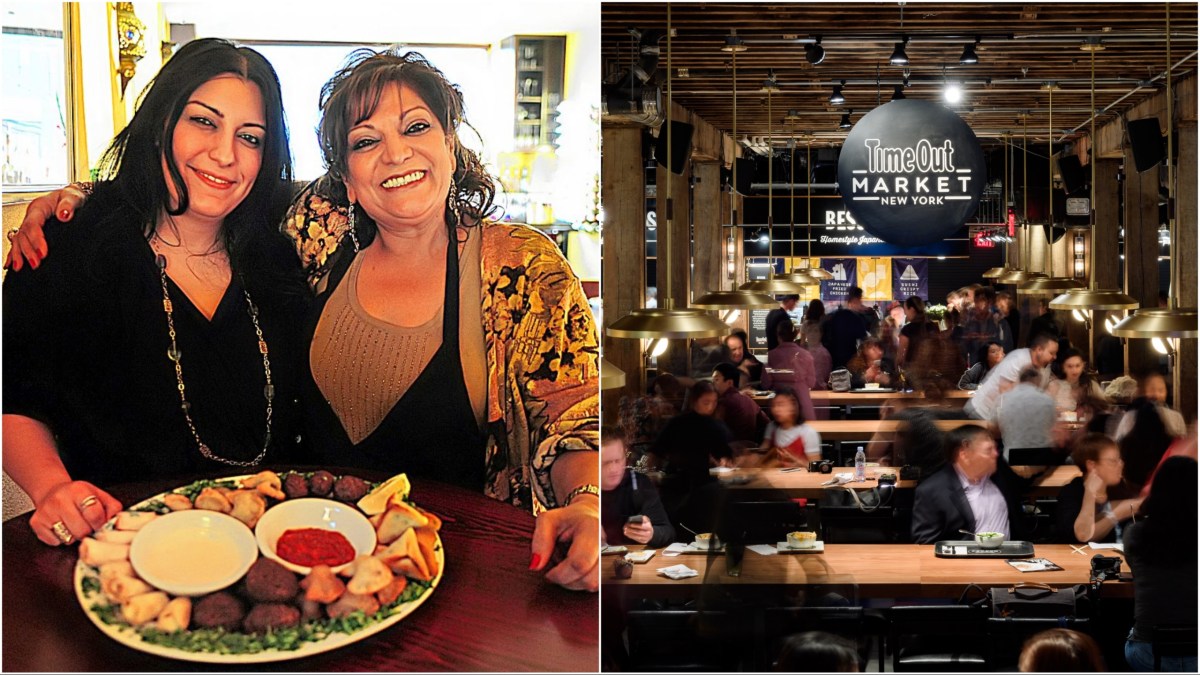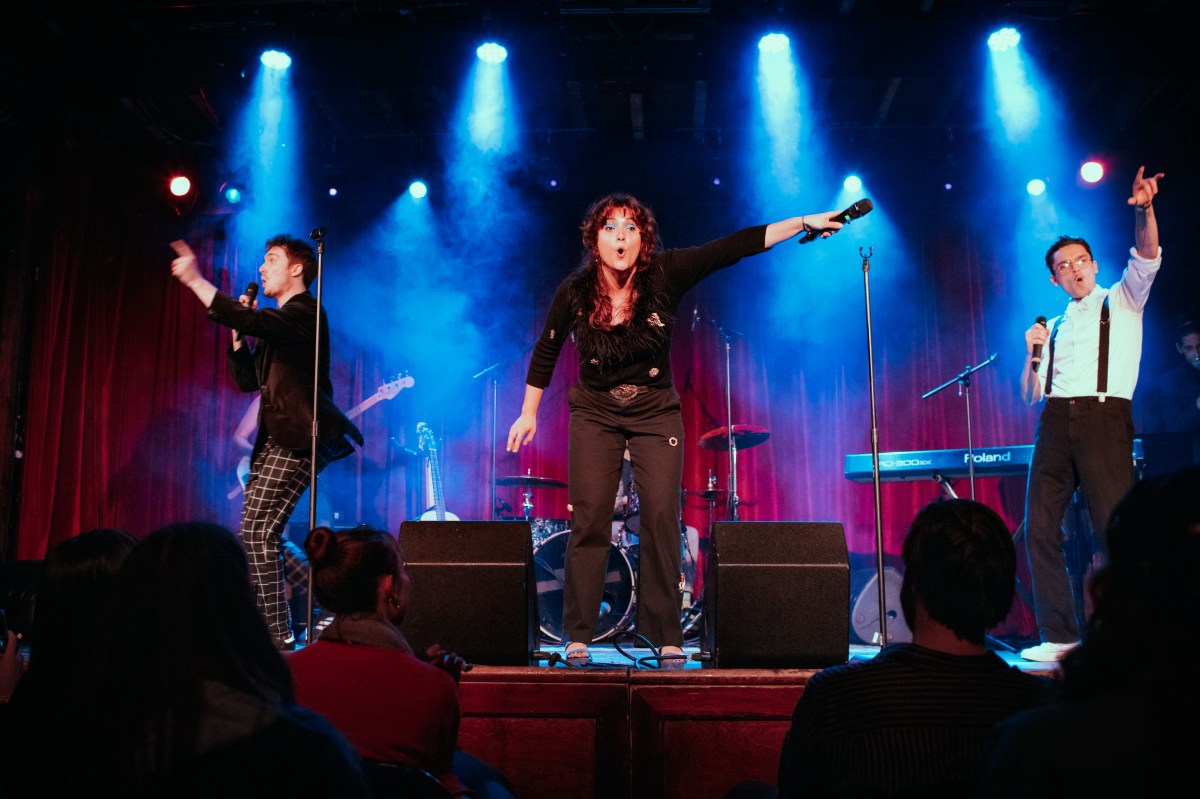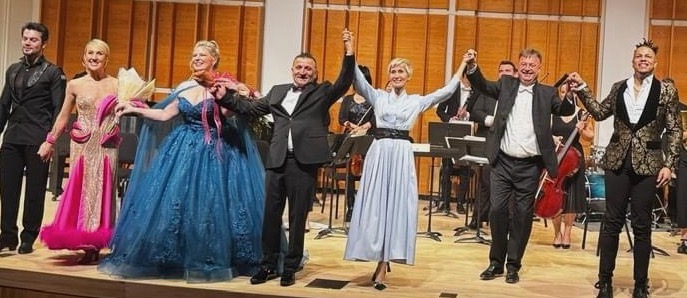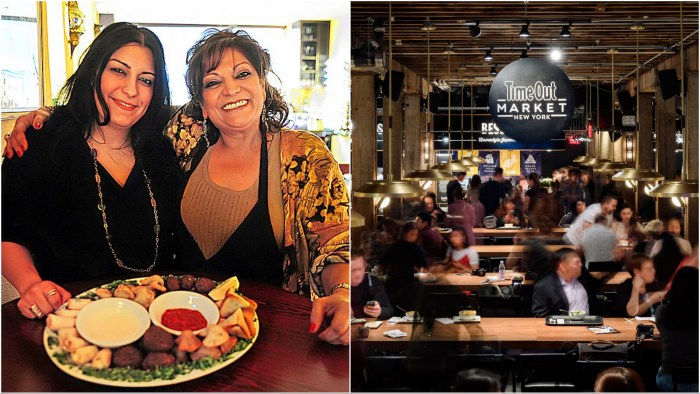The nation’s dirty laundry is being aired on stage in “Antigone,” a modernized, Afropunk-inspired Greek tragedy about a fierce woman of color who resists the decree of an unyielding ruler.
The Classical Theatre of Harlem, which is staging the production at Marcus Garvey Park, has chosen the Sophocles play because it speaks to some of the biggest issues in America right now: law, justice, marginalization, gender roles and more, according to Ty Jones, the show’s producing artistic director, who plays Creon.
“We looked at what’s going on in the world and how ‘Antigone’ resonates,” he told amNewYork. “There’s a lesson to be learned in this 2,500-year-old play. It’s time for us to strategize and perhaps we need to engage differently with one another.”
Set 40 years in the future, “Antigone” presents an uncomfortable story that unapologetically questions the establishment and points at our unwillingness to speak up for what is right.
Using heady audiovisual effects set to African-inspired choreography and a gospel chorus, the audience is introduced to Antigone (Alexandria King) and her sister Ismene (Ava McCoy) who have just lost their brothers in their struggles for power over Thebes, which ends tragically as they kill each other.
Creon, the new king, decrees that anyone who buries the rebel brother Polynices will be sentenced to death.
Antigone makes the choice to honor her brother and chooses love over obeying the edict. She buries her brother and must face Creon for her resistance.
The play delivers an atmosphere that is electric and intense, with black and white ideas of what is right and wrong at odds. It is hard to watch this familiar story play out (in front of a growing memorial of candles, balloons and signs), but it keeps you on the edge of your seat with both surprising and uplifting moments you’ll audibly react to.
Perhaps most importantly, the show uses modern speech and pulls in references that a modern day Harlem community knows — bringing a complex story normally taught about in schools to where the people are (for free) in a way that makes it relevant.
We spoke with both Jones and director Carl Cofield about the making of “Antigone” to understand what went into bringing it to Harlem.
What exactly makes this play relevant?
Jones: Greek plays altogether are the kinds of stories that will make you very uncomfortable. The core of the Greek play is that usually one side feels absolutely right as does the other side and when they clash, something tragic happens . . . usually someone’s death. When I watch young black boys get beat up by a cop, the cop believes that he’s doing something right — it’s something that’s been instilled in the system for decades upon decades. I really believe that in those shades of gray is where conversation happens. We’re hoping to promote dialogue and discussion and incite real conversation about the world in which we live in today.
Cofield: The production is placed 40 years from now after the current political administration’s policies had gone into effect and looks at how bleak things might be.
When you look at the Greek plays, they resonate with the black community. Like the Greeks, music has sustained black people in America — they find universal medicine in song. The religious nature of African-Americans is also seen in these plays because they call on the gods. That resonates with a lot of black folks I know. Some of the same things have sustained us. We’ve found hope and meaning in calling on the heavens through song and examining the existential questions on how to deal with grief and injustice.
“Antigone” is extremely courageous. In times of turbulence, we need to go back to the classics to see how people found strength, courage and how they were able to resist.
Creon is such a stubborn person. What was it like getting into character? Who did you look to for inspiration?
Jones: I had to look at the world to be able to take pieces from it to craft who this man is. I was looking at the Financial Times, The Wall Street Journal, The New York Times and watching Fox News and MSNBC to craft what it looks like when someone wants to build a rule of law and have many people follow it and have people who really believe in these things.
Immersing yourself in the news can be demoralizing. How did you keep your head above the water?
Jones: I get activated. I may get mad and upset (I have three small kids) but we need to comfort them and give them safe spaces. We need to make sure these young kids are well-versed in the way in which the world is built. Then they will have voices for themselves when they become adults.
Would you say that’s why Classical Theatre of Harlem is doing this for the public at no cost?
Cofield: It’s important that a community that might be underserved when it comes to the classics has an opportunity to see them in a way that is more accessible than reading it in school. It was very dry when I read it in school, but when I had the opportunity to see people of color and different gender castings, I said “Wow, there is a place for me at this table.” It’s one of the most rewarding things and I hope we can reach little kids or people who might not feel welcomed at every table.
Jones: You don’t have to make a donation to get a better seat. A healthy society is one with art. It cannot be for the elite. If we bring this to 15,000 people in the summer maybe we can get the arts back into schools — the arts are a salient part in one’s education. The show we do every summer starts those kinds of conversations. We’re finding all different arteries and touch points in the community to make a healthier Harlem.
Before you go: Performances are Tuesdays through Sundays through July 29 at 8:30 p.m. The Richard Rodgers Amphitheater is located inside Marcus Garvey Park at 18 Mount Morris Park W. Enter the park at 12th Street and Fifth Avenue. It’s free, and no reservations are required. Feel free to bring food and drink (nonalcoholic) for a picnic while you watch the show.

































